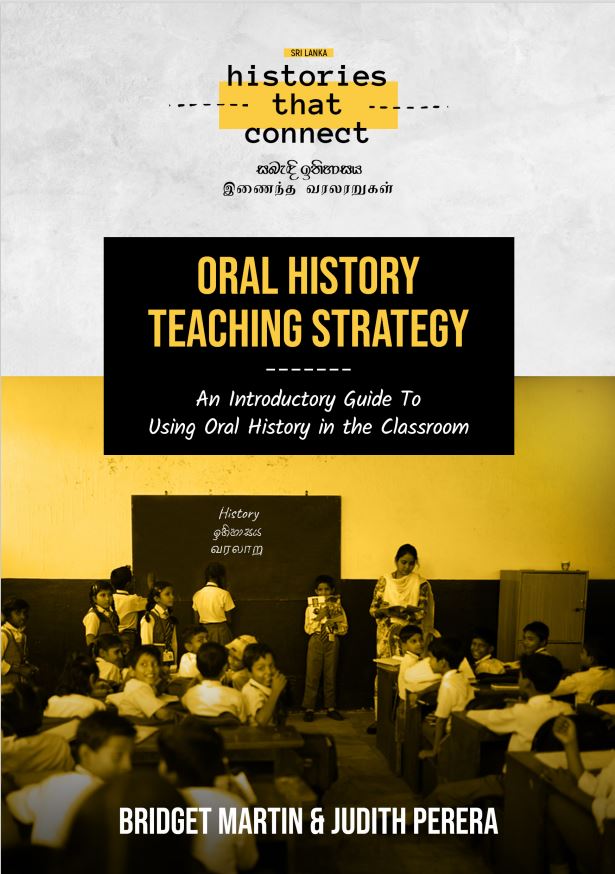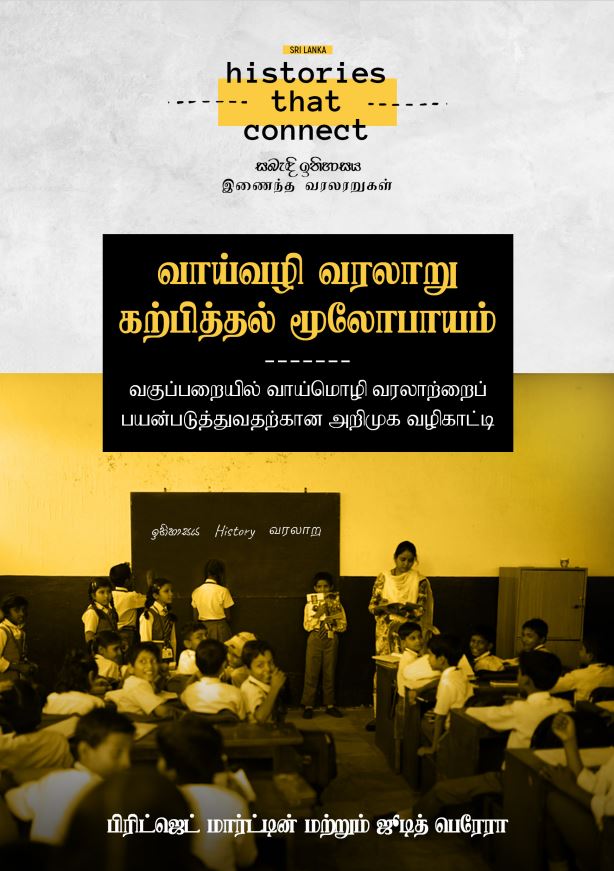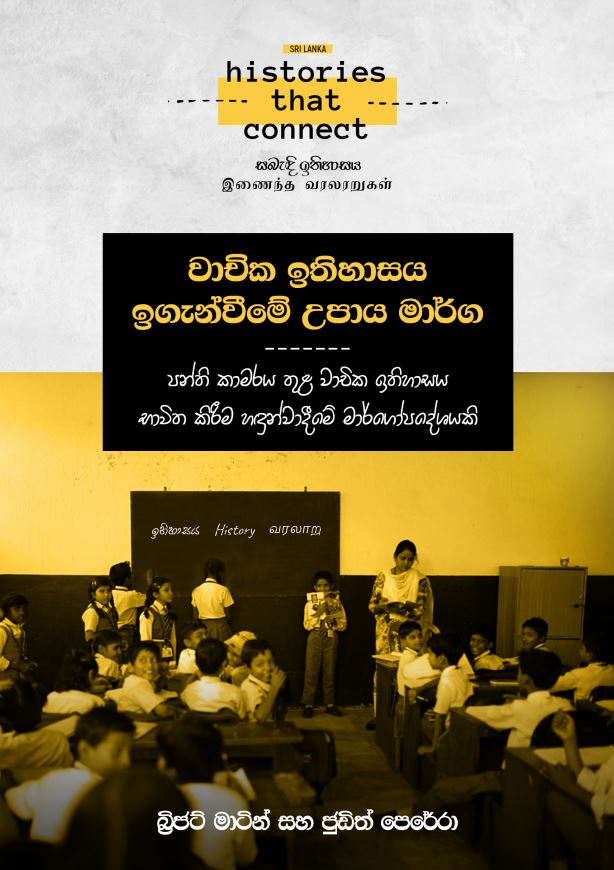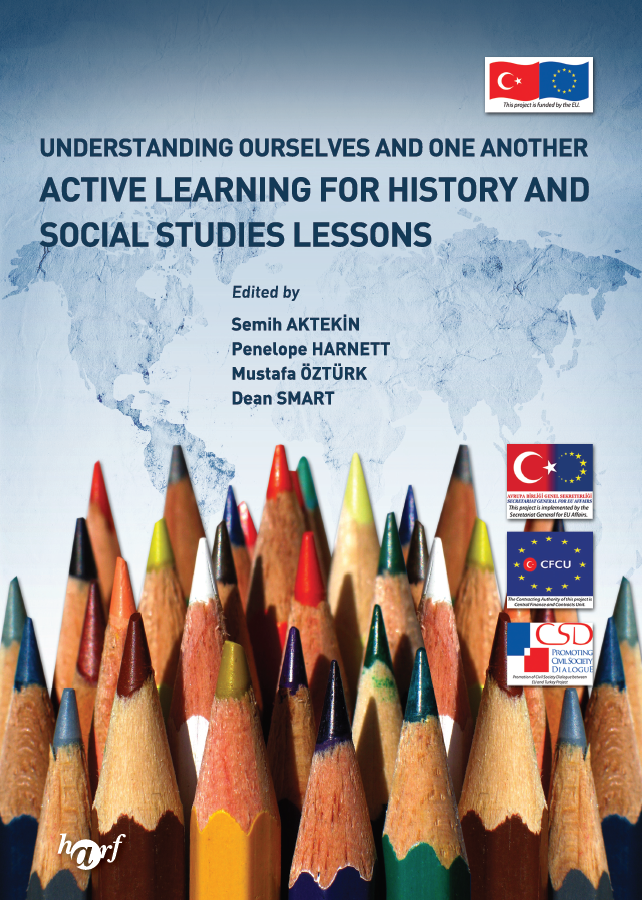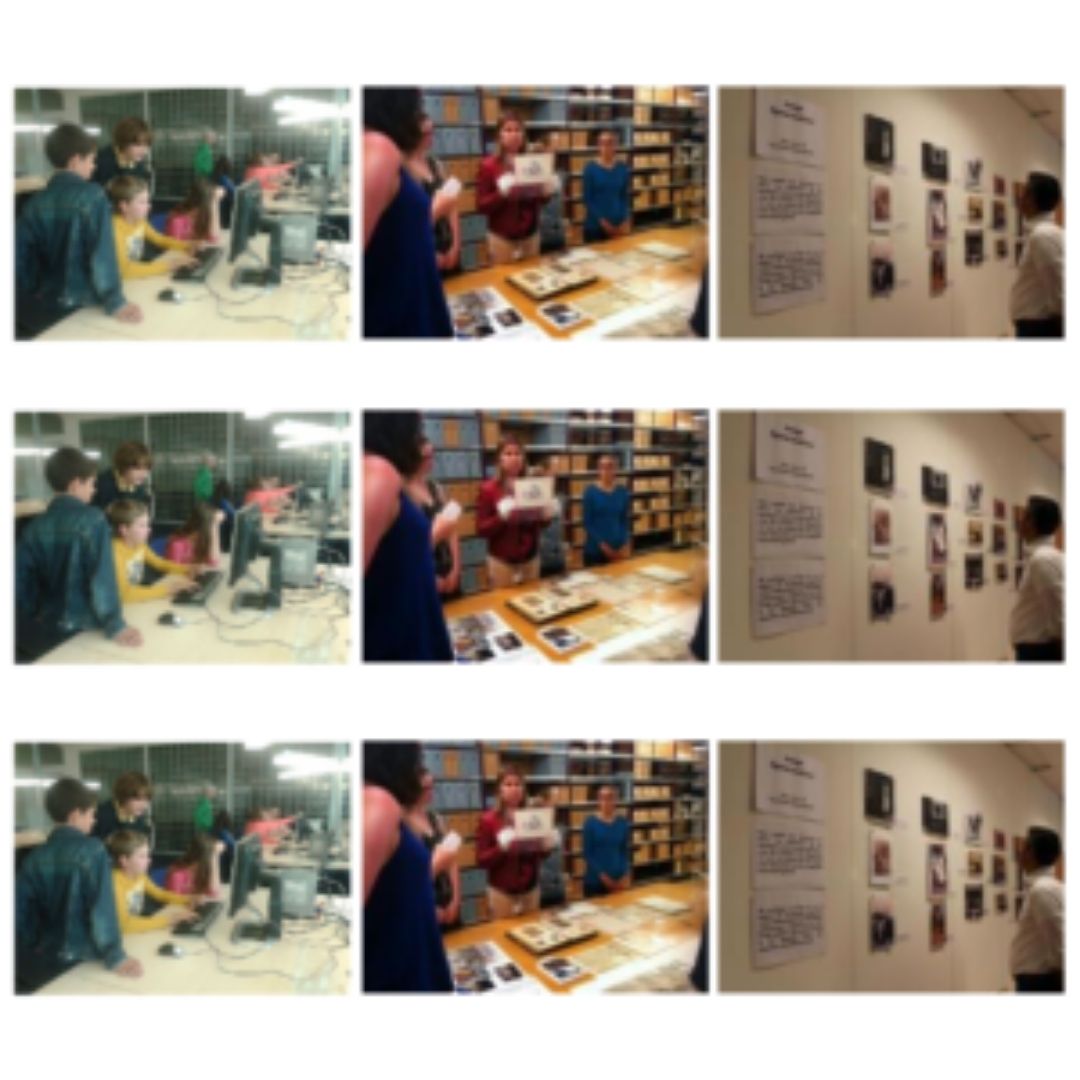This teaching strategy has been authored by Bridget Martin and Judith Perera in the framework of the pilot initiative ‘Histories that Connect – Sri Lanka‘, supported by Strengthening Reconciliation Processes in Sri Lanka (SRP). SRP is co-financed by the European Union and the German Federal Foreign Office, and implemented by the Deutsche Gesellschaft für Internationale Zusammenarbeit (GIZ) GmbH and the British Council.
The teaching strategy features a step-by-step guide on how to use oral history in the classroom, along with strategies for making an oral history project inclusive to a wide variety of students. It includes pointers on the technical requirements as well as the preparation needed for teachers and students alike. The document has been produced for use in Sri Lankan educational system, but is transferable to most other contexts and curricula.
The guide is available in the English, Tamil, and Sinhala languages.

